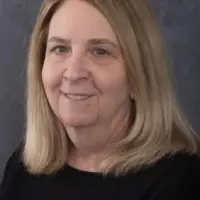About VA New Jersey Health Care System – Sussex Outpatient Clinic
You can find the Sussex VA Clinic in the New Jersey city of Newton. This clinic offers behavioral health services including substance use treatment in an outpatient setting. Their dietary care and social support services can complement your healing journey when receiving addiction therapy here. They also offer primary care among other services.
Newton is the County seat of Sussex County from where the clinic got its name. It is situated in a more rural part of northern New Jersey. The clinic also serves veterans from Andover, Branchville and Hackettstown. Veterans from these nearby cities can link directly to the clinic via US206 and NJ94. Sussex County Skylands Ride offers local public bus services that can get you in and out of the clinic. That’s if you’re local here. Newton Park & Ride offers commuter bus services to New York City and surrounding areas.
Personalized and Low Cost Addiction Recovery For Veterans
Over 1 in 10 veterans who visit the VA qualify for a substance use disorder diagnosis. This often results from deployment, combat exposure and injuries. If you’re struggling with substance use issues, you can receive them here. Addiction recovery is part of their mental health care. They can also help you tackle co-occurring disorders. This is when you struggle with both substance misuse and mental health issues at the same time.
One of the things I consider great about this facility is their commitment to keeping costs low. They accept Medicare, Medicaid and Tricare. You may even receive financial aid if you meet the eligibility criteria. It’s worth checking out. Another cool thing is that they tailor care to your unique needs. This is achieved through a comprehensive intake evaluation and personalized treatment planning. A tailored approach to care always delivers the best recovery outcomes.
Their outpatient addiction recovery mainly involves group and individual therapy to help you tackle underlying issues influencing your substance use. They may use evidence based models like cognitive behavioral therapy to help you develop healthier behavioral patterns. Emphasis is placed on building strong coping skills that encourage sobriety and prevent relapse.
Medication Assisted Recovery For Opioid Use Issues
You can receive medication assisted treatment (MAT) here if you’re dealing with opioid use issues. This will be part of your personalized care plan. The technique uses FDA approved meds to curb cravings and eliminate uncomfortable withdrawal symptoms. Counseling is provided to help you take care of the psychological and emotional aspects of things. This integrated approach enables you to stay in treatment longer, minimize relapse risk and foster lasting abstinence. The technique is also effective in addressing alcoholism and addiction to stimulants like cocaine and molly.
Dietary Care and Nutritional Education To Enhance Your Wellbeing
Sussex VA Clinic offers dietary care and nutritional education through group, individual and telehealth sessions. This focuses on making sure you’re getting the nutrition you need to stay healthy. I consider this service essential because of the inherent benefits of a balanced meal when navigating substance use recovery. A balanced meal can help replenish your body cells damaged by addiction related toxins. It boosts your energy, makes you stronger and keeps your mind clear. It can even help reduce cravings and keep you on track in your recovery.
Recovery Social Support To Maintain Abstinence
As you move forward in your treatment it’s important to maintain the progress you’ve made in recovery. This means providing you with strong social support services to help you stay on track. Sussex VA Clinic offers various supportive services via their social work department.
This may include access to affordable housing to provide structure, job opportunities to keep you financially independent and even financial aid as necessary. You can also access legal aid and transportation assistance. These services help keep you stable as you focus on healing.
Facility Overview
Latest Reviews
Rehab Score
Gallery
Other Forms of Payment
Self-pay involves paying for treatment out of your own pocket. You can use savings or credit, get a personal loan, or receive help from family and friends to fund your treatment. If you don't have insurance or your insurance plan doesn't cover a specific program, self-pay can help ensure you still get the care you need.
Financial aid can take many forms. Centers may have grants or scholarships available to clients who meet eligibility requirements. Programs that receive SAMHSA grants may have financial aid available for those who need treatment as well. Grants and scholarships can help you pai for treatment without having to repay.
Sliding scale payments are based on a client's income and family size. The goal is to make treatment affordable to everyone. By taking these factors into account, addiction recovery care providers help ensure that your treatment does not become a financial burden to you or your family, eliminating one barrier to care.
Military members, veterans, and eligible dependents have access to specific insurance programs that help them get the care they need. TRICARE and VA insurance can help you access low cost or no cost addiction and mental health treatment. Programs that accept military insurance often have targeted treatment focused on the unique challenges military members, veterans, and their families face.
Private insurance refers to any kind of healthcare coverage that isn't from the state or federal government. This includes individual and family plans offered by an employer or purchased from the Insurance Marketplace. Every plan will have different requirements and out of pocket costs so be sure to get the full details before you start treatment.
Medicaid is a state based program that helps lower-income individuals and families pay for healthcare. Medicaid covers addiction treatment so those enrolled can use their coverage to pay for rehab. When a program accepts Medicaid the client often pays very little or nothing out of their own pocket.
Medicare is a federal program that provides health insurance for those 65 and older. It also serves people under 65 with chronic and disabling health challenges. To use Medicare for addiction treatment you need to find a program that accepts Medicare and is in network with your plan. Out of pocket costs and preauthorization requirements vary, so always check with your provider.
Addiction Treatments
Levels of Care
Outpatient Programs (OP) are for those seeking mental rehab or drug rehab, but who also stay at home every night. The main difference between outpatient treatment (OP) and intensive outpatient treatment (IOP) lies in the amount of hours the patient spends at the facility. Most of the time an outpatient program is designed for someone who has completed an inpatient stay and is looking to continue their growth in recovery. Outpatient is not meant to be the starting point, it is commonly referred to as aftercare.
Completing a drug or alcohol rehab program shouldn't spell the end of substance abuse treatment. Aftercare involves making a sustainable plan for recovery, including ongoing support. This can include sober living arrangements like halfway houses, career counseling, and setting a patient up with community programs like Alcoholics Anonymous (AA) or Narcotics Anonymous (NA).
Treatments
Mental health rehabs focus on helping individuals recover from mental illnesses like bipolar disorder, clinical depression, anxiety disorders, schizophrenia, and more. Mental health professionals at these facilities are trained to understand and treat mental health issues, both in individual and group settings.
Programs
Adult rehab programs include therapies tailored to each client's specific needs, goals, and recovery progress. They are tailored to the specific challenges adult clients may face, including family and work pressures and commitments. From inpatient and residential treatment to various levels of outpatient services, there are many options available. Some facilities also help adults work through co-occurring conditions, like anxiety, that can accompany addiction.
Recovery is most successful when clients feel accepted and validated by their peers and treatment providers. Facilities that offer LGBTQ-inclusive programming are committed to creating a safe space where everyone can grow and recover without fear of judgment or discrimination. They will have dedicated policies in place to create a safe and supportive environment that fosters free expression.
Serving in the military is both mentally and physically challenging, and can result in trauma that persists even after combat ends. Military programs are tailored to the specific and often complex needs of active duty personnel, veterans, and military families. Clients often access these programs through the U.S. Department of Veterans Affairs (VA).
Young adulthood can be an exciting, yet difficult, time of transition. Individuals in their late teens to mid-20s face unique stressors related to school, jobs, families, and social circles, which can lead to a rise in substance use. Rehab centers with dedicated young adult programs will include activities and amenities that cater to this age group, with an emphasis on specialized counseling, peer socialization, and ongoing aftercare.
Clinical Services
Cognitive Behavioral Therapy (CBT) is a therapy modality that focuses on the relationship between one's thoughts, feelings, and behaviors. It is used to establish and allow for healthy responses to thoughts and feelings (instead of unhealthy responses, like using drugs or alcohol). CBT has been proven effective for recovering addicts of all kinds, and is used to strengthen a patient's own self-awareness and ability to self-regulate. CBT allows individuals to monitor their own emotional state, become more adept at communicating with others, and manage stress without needing to engage in substance abuse.
Whether a marriage or other committed relationship, an intimate partnership is one of the most important aspects of a person's life. Drug and alcohol addiction affects both members of a couple in deep and meaningful ways, as does rehab and recovery. Couples therapy and other couples-focused treatment programs are significant parts of exploring triggers of addiction, as well as learning how to build healthy patterns to support ongoing sobriety.
Dialectical Behavior Therapy (DBT) is a modified form of Cognitive Behavioral Therapy (CBT), a treatment designed to help people understand and ultimately affect the relationship between their thoughts, feelings, and behaviors. DBT is often used for individuals who struggle with self-harm behaviors, such as self-mutilation (cutting) and suicidal thoughts, urges, or attempts. It has been proven clinically effective for those who struggle with out-of-control emotions and mental health illnesses like Borderline Personality Disorder.
Experiential therapy is a form of therapy in which clients are encouraged to surface and work through subconscious issues by engaging in real-time experiences. Experiential therapy departs from traditional talk therapy by involving the body, and having clients engage in activities, movements, and physical and emotional expression. This can involve role-play or using props (which can include other people). Experiential therapy can help people process trauma, memories, and emotion quickly, deeply, and in a lasting fashion, leading to substantial and impactful healing.
Research clearly demonstrates that recovery is far more successful and sustainable when loved ones like family members participate in rehab and substance abuse treatment. Genetic factors may be at play when it comes to drug and alcohol addiction, as well as mental health issues. Family dynamics often play a critical role in addiction triggers, and if properly educated, family members can be a strong source of support when it comes to rehabilitation.
Group therapy is any therapeutic work that happens in a group (not one-on-one). There are a number of different group therapy modalities, including support groups, experiential therapy, psycho-education, and more. Group therapy involves treatment as well as processing interaction between group members.
In individual therapy, a patient meets one-on-one with a trained psychologist or counselor. Therapy is a pivotal part of effective substance abuse treatment, as it often covers root causes of addiction, including challenges faced by the patient in their social, family, and work/school life.
Life skills trainings involve all the skills a person must have in order to function successfully in the world. These include time management, career guidance, money management, and effective communication. Truly successful addiction recovery is based on the ability to not only live substance-free, but to thrive. Life skills teaches the practical necessities of functioning in society, which sets clients up for success in life, and therefore sobriety.
Nicotine Replacement Therapy (NRT) is a way of getting nicotine into the bloodstream without smoking. It uses products that supply low doses of nicotine to help people stop smoking. The goal of therapy is to cut down on cravings for nicotine and ease the symptoms of nicotine withdrawal.
Nutrition therapy, aka medical nutrition therapy (MNT), is a way of treating physical, emotional, and medical conditions through diet. Specific dietary plans are designed by professional nutritionists or registered dietitians, and patients follow them in order to positively affect their physical and mental health.
Trauma therapy addresses traumatic incidents from a client's past that are likely affecting their present-day experience. Trauma is often one of the primary triggers and potential causes of addiction, and can stem from child sexual abuse, domestic violence, having a parent with a mental illness, losing one or both parents at a young age, teenage or adult sexual assault, or any number of other factors. The purpose of trauma therapy is to allow a patient to process trauma and move through and past it, with the help of trained and compassionate mental health professionals.
Amenities
-
Private Setting
Staff & Accreditations
Staff

Patricia O'Kane, MSS
Executive Medical Center Director

John A. Griffith, RN, MSHA
Associate Medical Center Director

Juliza Ramírez-Wylie, MHA, MEd, FACHE
Associate Director, Lyons

Michele Young, MD
Chief of Staff
Accreditations

The Joint Commission, formerly known as JCAHO, is a nonprofit organization that accredits rehab organizations and programs. Founded in 1951, the Joint Commision's mission is to improve the quality of patient care and demonstrating the quality of patient care.
Joint Commission Accreditation: Yes
Accreditation Number: 150655
Contact Information
222 High Street
Newton, NJ 07860
